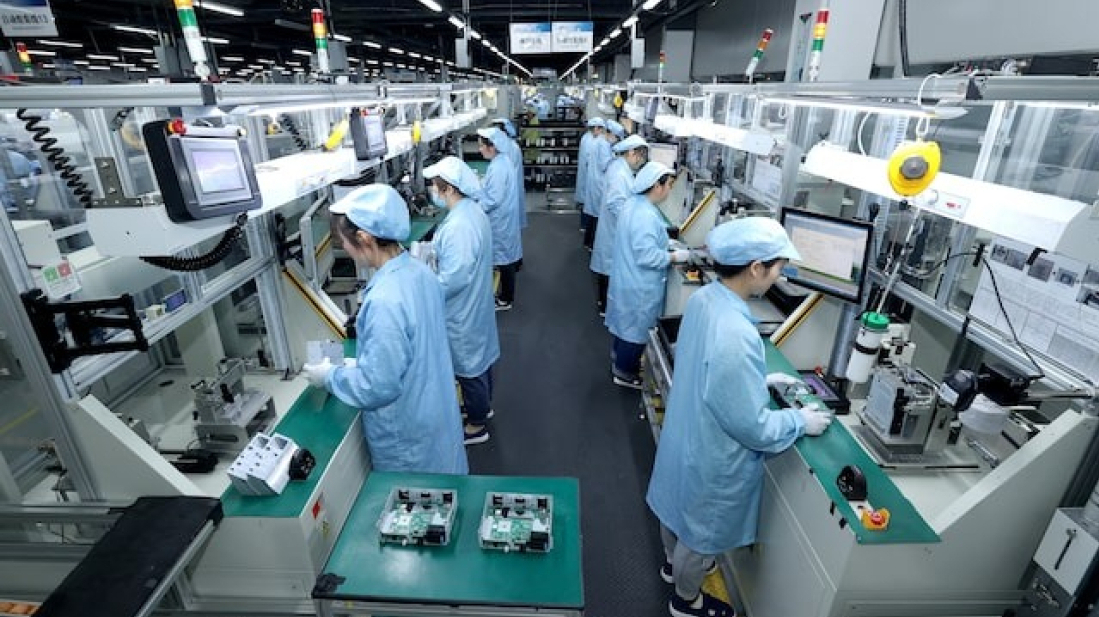New world champ Lando Norris to drive as No. 1 in 2026
Lando Norris, fresh off securing his first Formula 1 world championship, has confirmed he will proudly race with the No. 1 on his McLaren in the 2026 ...

Applied Materials warned of declining visibility and heightened uncertainty for the semiconductor sector, as U.S. export restrictions and shifting trade policies weigh on Chinese demand.
The company said it expects fourth-quarter revenue of $6.70 billion, plus or minus $500 million—well below analysts’ expectations of $7.33 billion, according to LSEG data.
China was the company’s largest market in the July quarter, accounting for 35% of total sales. But new orders from the region are under pressure, raising investor concerns over long-term earnings growth and exposure to geopolitical volatility.
"China volatility is significantly clouding visibility into core earnings potential both geopolitically and cyclically," Deutsche Bank strategists said in a note.
CEO Gary Dickerson said during an investor call that the near-term outlook was being affected by “wide-ranging implications for the semiconductor industry” arising from the current policy environment.
The company’s forecast follows a similar warning from Dutch chipmaking equipment giant ASML Holding last month, underscoring growing uncertainty across the global supply chain.
Despite the outlook, some analysts suggested the downturn may be temporary. J.P.Morgan's Harlan Sur said recent weakness in China demand and foundry orders likely reflects "timing of spending rather than structural issues."
Applied Materials’ shares had risen 15.7% this year before Friday’s drop, outperforming the Nasdaq index, which gained 12.5% in the same period.
The company reported an 8% rise in third-quarter revenue to $7.30 billion—slightly ahead of estimates. However, its earnings forecast fell short of market expectations.
A coup attempt by a “small group of soldiers” has been foiled in Benin after hours of gunfire struck parts of the economic capital Cotonou, officials said on Sunday.
A delayed local vote in the rural Honduran town of San Antonio de Flores has become a pivotal moment in the country’s tightest presidential contest, with both campaigns watching its results as counting stretches into a second week.
A powerful 7.5-magnitude earthquake struck northeastern Japan late on Monday, prompting mass evacuations and tsunami warnings along the coastline.
Lava fountains shot from Hawaii’s Kīlauea volcano from dawn to dusk on Saturday, with new footage showing intensifying activity at the north vent.
McLaren’s Lando Norris became Formula One world champion for the first time in Abu Dhabi, edging Max Verstappen to the title by just two points after a tense season finale.
Georgia is entering one of the most consequential phases of its foreign policy in years.
On December 8, an official welcome ceremony was held for President Ilham Aliyev of Azerbaijan in Bratislava, Slovakia. The ceremony took place at the Presidential Palace, where a guard of honor was lined up to greet the Azerbaijani president.
Uzbekistan, Kyrgyzstan and Tajikistan have begun upgrading cross-border electricity transmission lines to increase regional power capacity, a move announced after high-level meetings in Tashkent and confirmed by officials in Bishkek.
Azerbaijan's Minister of Foreign Affairs Jeyhun Bayramov held both a tête-à-tête and an extended-format meeting with Seyed Abbas Araghchi, the Foreign Minister of Iran, in Baku on Monday (8 December).
Iranian Foreign Minister Abbas Araghchi left Tehran for Baku on Sunday (7 December) evening to hold talks with Azerbaijan’s President and Foreign Minister.
You can download the AnewZ application from Play Store and the App Store.

What is your opinion on this topic?
Leave the first comment